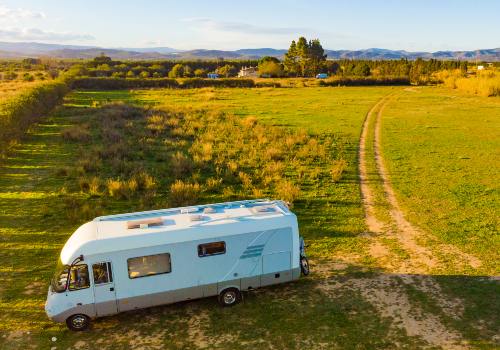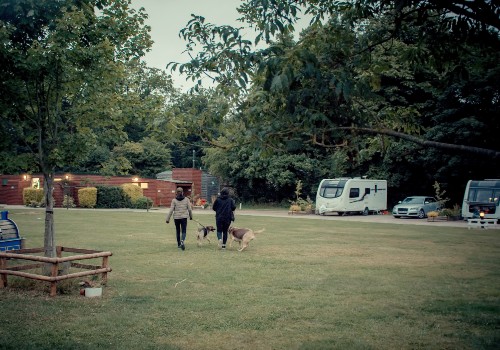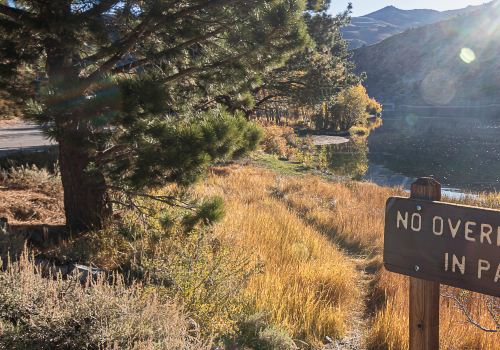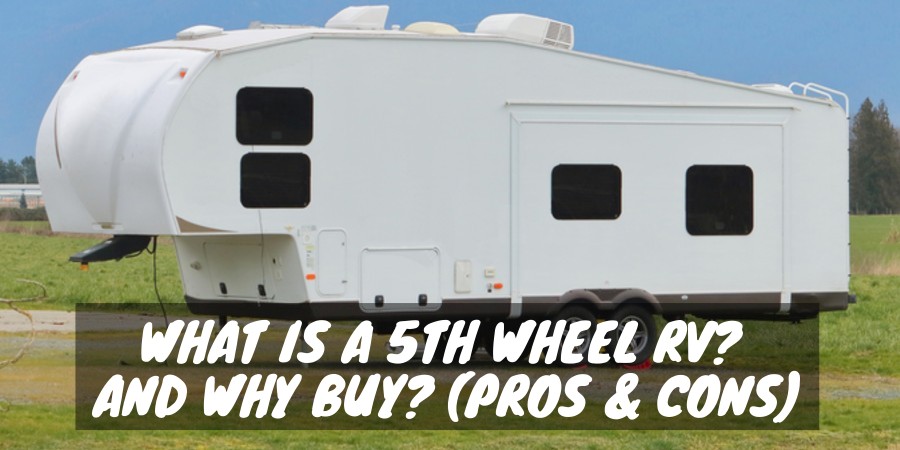The latest RV news focuses on a proposed City Ordinance 2219 in Sheridan, Wyoming, requiring campgrounds to restrict guest stays. What are the specifics of this ordinance, and will other RV parks adopt this rule?
The rules state that a recreational vehicle cannot remain in a campsite long-term and will have to move their camper to a different RV park or campsite within the same campground. This ordinance will not affect people who only take weekend or week-long RV trips.
However, for seasonal and full-time RVers who love to take advantage of rate discounts by booking for two to twelve-month stays, this ordinance will be inconvenient at most or change the way they RV entirely.
Let’s look at why the city of Sheridan has proposed this ordinance and what other rules are part of the package so you can prepare for possible changes in RV parks across the US.
What City Ordinance 2219 Proposes

In January 2021, the city of Sheridan, Wyoming, proposed Ordinance 2219 that states:
- The city will limit the time a recreational vehicle may remain in city RV parks within the “gateway districts.”
Sheridan is a popular tourist stop with Old West attractions, stunning scenery, and five RV parks in the local area. Sheridan enjoys revenue from tourists, and many of them stay in local RV parks.
However, the proposal explicitly states the ordinance would only apply to RV parks in B1-zoned areas of the city that are open for seven or more months a year.
Only one RV park is currently within the B1 zone of Sheridan, and that campground is open less than seven months yearly.
The ordinance will apply to new RV parks built within the B1 zones so that the city can maintain uniform control over the appearance and clientele of each property.
The town council set a date of February 1, 2021, to consider the ordinance, and as of today, I find no mention of such rules for RV parks when searching the City of Sheridan Ordinance Codes.
It’s uncertain whether the city is still working on a final ordinance about this matter or has voted it down.
Why Sheridan Wants to Limit RV Park Stays

The Sheridan Council wants to restrict the time any recreational vehicle can remain stationary in RV parks within the city’s B1 zone to reduce issues with unsightly clutter.
But is clutter a significant problem in RV parks?
Yes, RV campsite clutter is an issue in campgrounds that allow long-term stays. I have seen lovely touches such as old sofas or full-size residential refrigerators on the campsites of long-term RV park “residents.”
I agree that some RVers love decorating their campsites excessively, while others have no issue piling up trash outside. Unfortunately, both can make the park and city look bad and entice wildlife or criminals to visit, which is another concern.
Forcing RVers to move every month will curtail the accumulation of clutter on the campsite, so the RV park and city remain tidy.
How Similar Ordinances Will Affect RVers

It wouldn’t surprise me if more RV parks adopt restrictions on the length of a reservation, and I don’t see it being a huge issue for most RVers.
Motorhome owners should be starting up and driving their camper every 30 days to keep the engine running smoothly anyway, so moving campsites is a good thing.
In my travels, I have already come across private RV parks that limit the number of days a guest can stay. In addition, most RV co-ops or clubs restrict the length of stays for members at their sister campgrounds.
I never inquired whether RV park booking limits were a city or county regulation or just the park owner’s decision. I book for the time they allow or choose another RV park.
Anyone who frequents state and national parks is already aware that they limit bookings to no more than 14 days in a single campsite.
If you’re part of a couple, you can typically book under your partner’s name for another two weeks if you want to stay in the same park, but most will still require you to move campsites as other guests have already booked your spot.
Some state and national parks refuse back-to-back stays of the same RV and will only allow you to rebook after you’ve left the campground for anywhere from three to thirty days.
If a similar ordinance to the one in Sheridan spreads across the country, it will impact full-time and seasonal RVers the most, who enjoy parking for several months.
There are benefits to long-term bookings, such as fully exploring an area, enjoying the park’s amenities, socializing with other RV guests, and taking advantage of the monthly discounts on campsite fees versus paying a nightly rate.
It gets tiring to constantly be setting up and tearing down your campsite, especially as you age. So not having to move your RV for a month or more is very nice, as it saves a ton on fuel expenses, and you can set up your campsite once and relax for an extended period.
The Unspoken Reason for RV Campground Restrictions

While state and national parks state the rule is to allow more guests to visit, I know there is an “unspoken” reason they and private RV parks with similar restrictions have them on the books.
The reason is that a small percentage of RVers or tent campers are down on their luck and need an affordable place to stay. Many state laws say that you cannot force any person who remains in any rented location for more than 30 days to leave without an eviction decree from a judge.
Want to Connect With a Community of Over 1,078 RV Enthusiasts?
Unfortunately, a few unpleasant RVers know the laws and intentionally book long-term, then quit paying and only leave once a judge enforces it. In many instances, this can take months.
In the meantime, they tend to let their campsite become a mess and often antagonize other guests and campground staff.
With such an ordinance in place, it gives RV park owners and state and national park rangers the ability to evict non-paying or troublesome guests quickly.
A secondary reason many RV parks can benefit from restricting reservation length is for money. With the recent influx of hundreds of thousands of new RVers after the pandemic hit, campsites are in even more demand.
If an RV park has guests willing to pay a higher nightly rate to stay a few weeks, as opposed to giving them a big discount to book a month or more, it makes financial sense to do so.
For example, I did a workamping stint at a coastal RV park. When I began, of the 100 campsites, 21 long-term RVing “residents” were paying only $490 a month.
Of this group, at least ten had extremely cluttered campsites that brought down the appeal of the rest of the campground. In addition, new guests often complained to the staff about being parked next to one of these sites.
After new management came in, they realized that the campground was full almost every month of the year, and instead of collecting a $45 nightly fee per site, they were taking a big hit on these long-term RVers.
They quickly enacted new rules and gave a 60-day notice that the park would no longer allow long-term bookings outside snowbird season. In addition, all snowbirds had to pre-pay $1100 a month for their sites.
As you can guess, all of the long-term residents (and their junk) left the park, to the delight of the staff, management, and other guests.
In Summary
As a full-time RVer, I don’t mind if the ordinance in Sheridan spreads nationwide, as it would be an overall positive way to reduce issues with ugly campsite clutter or less-than-ideal guests.
RV parks that rely on longer bookings to stay financially afloat during off-peak travel seasons will find a way to keep those guests happy.
RVing is more popular than ever, so keeping abreast of possible changes when booking campsites will help you plan future RV trips accordingly!
10 Unwritten Rules For Camping RV Tips and Campsite Etiquette (Video)
"Man cannot discover new oceans unless he has the courage to lose sight of the shore."
-- Andre Gide











